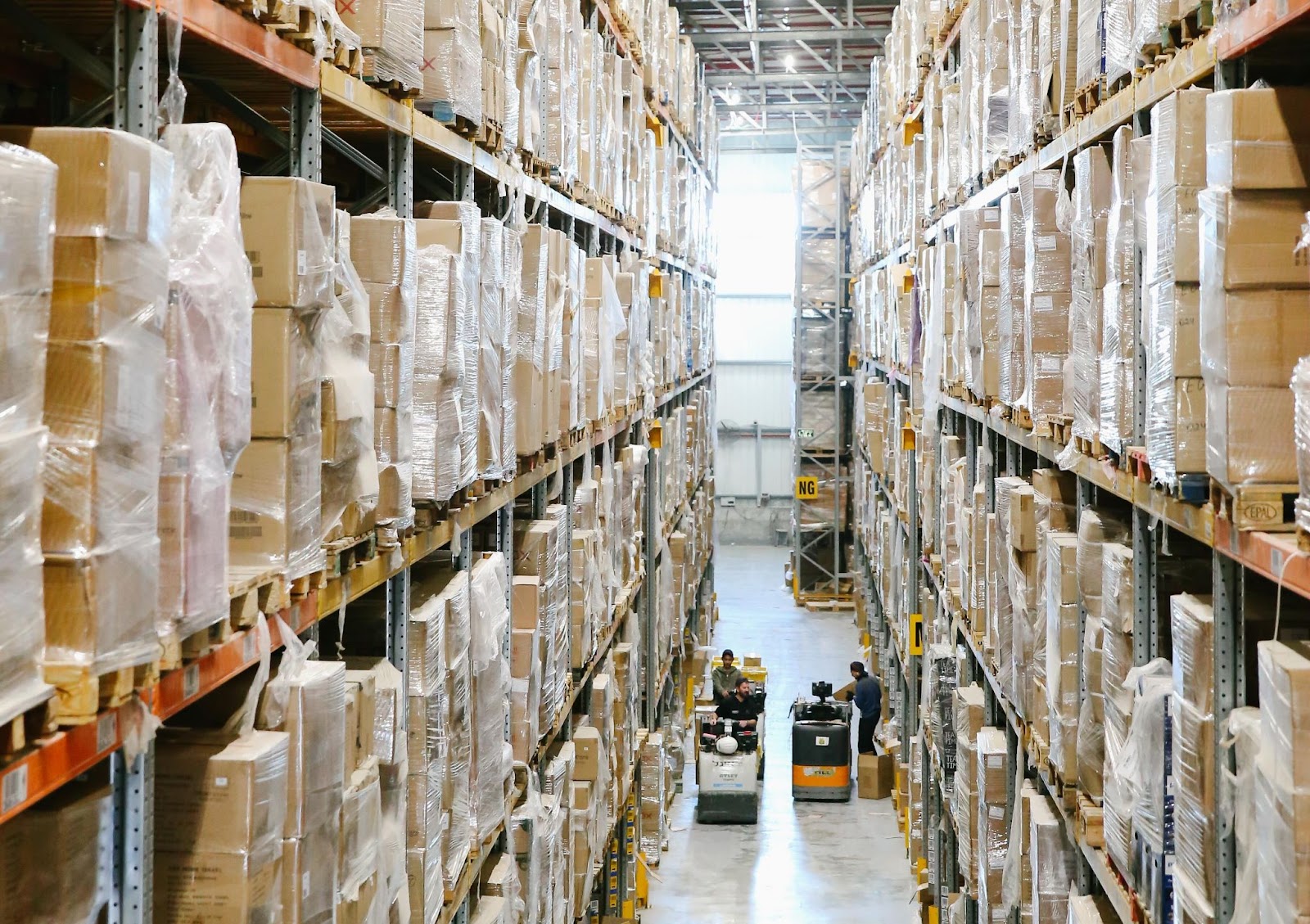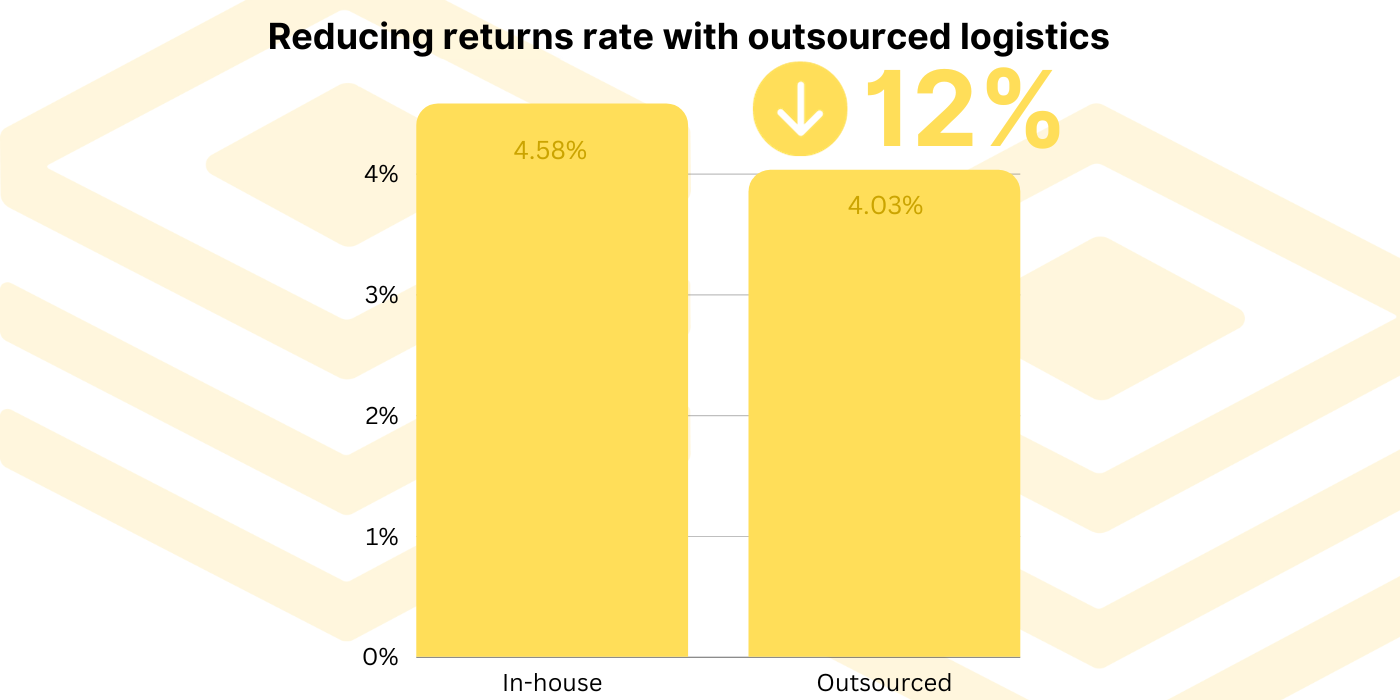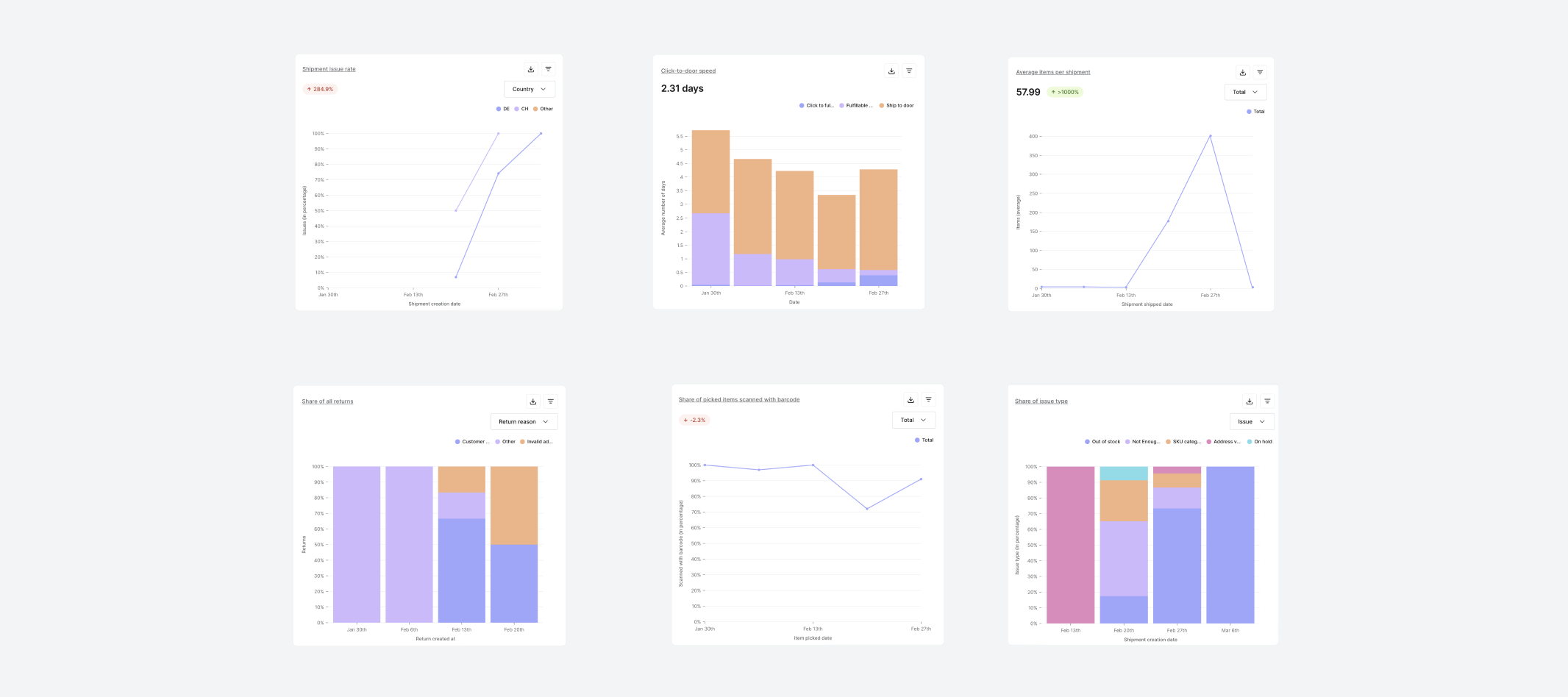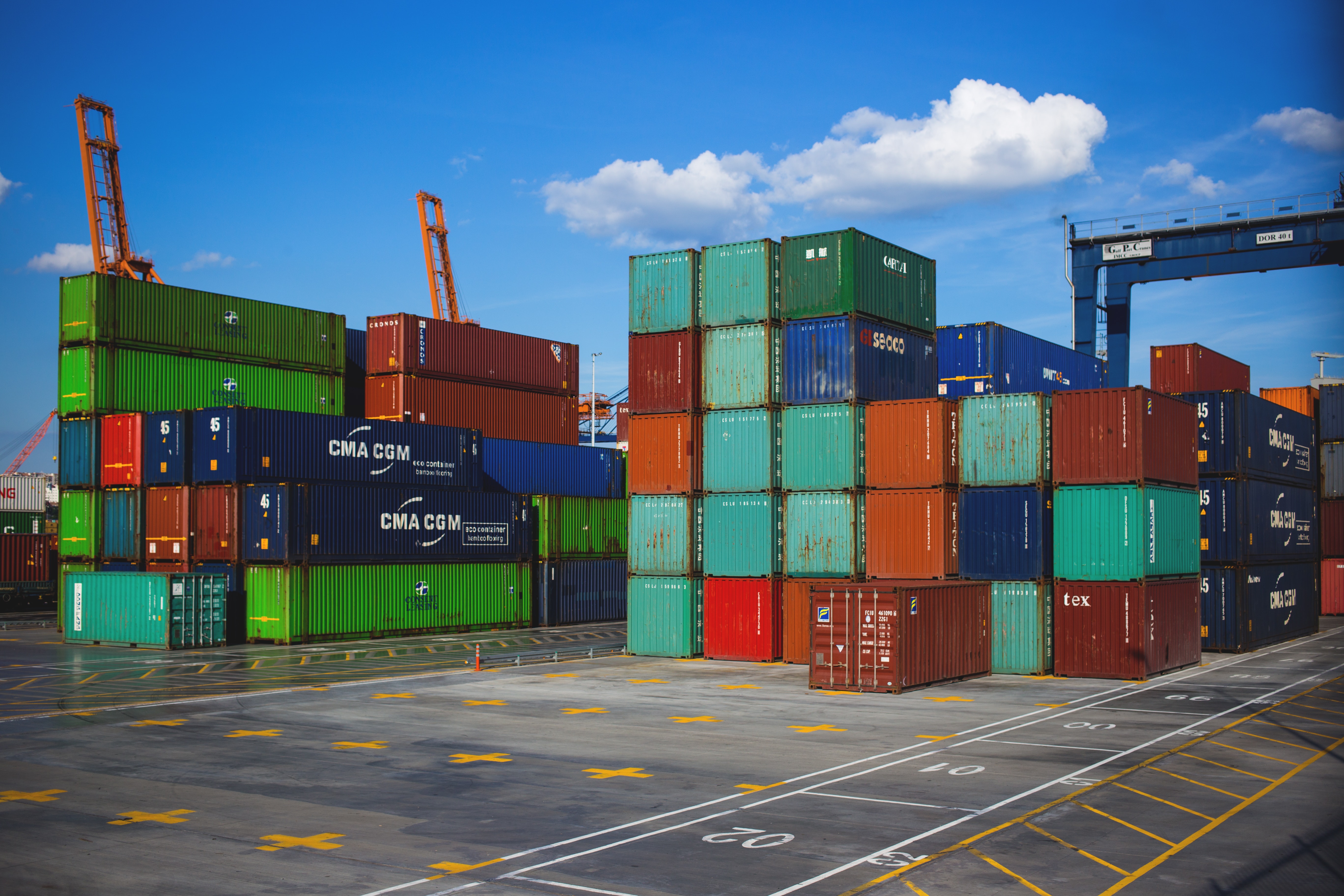What is a WMS and how does it impact your business?
A WMS gives you a complete view of your warehouse, so you know what's coming in and what's going out. Here's why that matters.
.png)
What is WMS software?
If you are running an e-commerce business, you might already be familiar with ecommerce WMS software. If not, WMS stands for Warehouse Management System.
A WMS is software that tracks everything that enters and leaves a warehouse. Warehouse Management Systems works by syncing up your warehouse operations with your inventory management and order fulfillment processes. This gives you complete visibility over your warehouse operation.

What to expect from the best WMS software?
With e-commerce business growth comes a new set of challenges. Inventory management, lengthy processes, and additional costs for example. The best software gives you solutions to all these challenges and more, equipping you with the tools to manage your inventory, streamline processes and cut costs.
You can expect an easier and more efficient way to track your entire warehouse operation, while making it more straightforward for your staff to pick and pack orders.
The best WMS software integrates seamlessly with your current shop setup, is simple to use and grows with your warehouse operations.
You might find the following qualities from good WMS software:
- Maximum functionality
- Ease of use
- Total transaction management
- Flexibility
- Usable, easy to understand metrics
- Seamless integration
- ROI value
What part does a WMS play in the supply chain?
A crucial one. A WMS boosts supply chain management by managing your fulfillment processes, from receiving raw materials to shipping goods.
Plus, a Warehouse Management System ensures that goods and materials move through your entire supply chain as efficiently and as cost effectively as possible. Every function across your supply chain can be managed by a WMS, including:
- Warehouse layout - a WMS can help you customize workflows and picking patterns to ensure a completely optimized inventory allocation.
- Inventory tracking - the addition of a WMS equips your warehouse with advanced tracking systems, such as RFID and barcode scanners so that inventory can be found easily if it needs to move.
- Picking and packing - introduce zone picking, wave picking or batch picking to improve picking and packing processes. Your warehouse staff will be able to complete pick-and-pack tasks in the most time-efficient way.
- Receiving and storing - a WMS makes inventory management and storage simple, and allows warehouse associates to find goods with ease.
- Labor management - monitor performance based on key performance indicators (KPIs) such as picks per hour to help you understand where you need more support.
- Reporting - warehouse management software gives you complete visibility over warehouse performance, enabling you to identify areas where you excel and where improvement is needed.
What are the different types of Warehouse Management Systems?
There are four types of WMS that are most commonly used. These are:
- Standalone WMS
- ERP WMS software
- Supply chain module
- Cloud-based WMS software
Each type of software offers unique benefits, according to the needs of the warehouse. The right Warehouse Management System software for your e-commerce company will depend on several factors. First, you need to consider the size of your current supply chain and rate of business growth.
You also need to think about whether you need mobile and cloud capabilities. This could mean introducing new tech to your warehouse operation. Would you prefer a WMS that will work with your current systems, processes and technologies - for example, barcode scanners?
There's a lot to decide. Understanding each type will help you to determine which WMS software is the right fit for your ecommerce business.
Standalone WMS
Standalone WMS software tends to suit smaller warehouse operations. Equally, they are worthwhile for using alongside your other supply chain operations if you don't want to integrate an entirely new system.
A stand alone Warehouse Management System will be the most affordable as they only offer warehouse management features. Nevertheless, a standalone system gives you the two most important basic pieces of software needed:
- Warehouse operations
- Inventory management
A warehouse cannot function without these two systems. This means that a standalone system is ideal if you need to improve certain functions across your supply chain. Simple to use and requiring no integration, a standalone WMS can be launched immediately and will enable you to manage:
- Picking and packing
- Shipping
- Receiving/returns
- FIFO or LIFO data management
- Barcode scanning
- Inventory tracking
- Cycle counts
You should be aware that standalone systems may not integrate well with more advanced WMS software. If you experience further growth and see a need for more tech in the future, a more flexible and robust system will be a better option.
ERP WMS software
Enterprise Resource Planning (ERP) WMS software is a good solution for warehouses or businesses that are expanding and need to improve supply chain functions.
ERP WMS software equips you to organize your entire supply chain. Not only that, you can manage all these functions too:
- Accounting
- HR
- Customer service
- Project management
- Risk management
- Purchasing
Despite the fact that warehouse management is not central to ERP WMS software, it's ideal for consolidating your entire business operation into one platform. This makes your supply chain easier to view and manage.
Cloud-based WMS software
Cloud technology in your warehouse offers a whole heap of benefits, including:
- Enhanced security
- Less IT maintenance
- Low running costs
Cloud-based WMS software runs on servers outside of your business, which means that integration and management is quicker and more cost-effective. Having an on-site WMS requires higher levels of maintenance, while initial integration can cause disruption to your day-to-day operations.
You would benefit from having a dedicated IT team managing the WMS too, rather than having to hire an in-house team or third-party agency, which would increase your costs.
A cloud-based WMS gives you the added benefit of robust features like:
- Scalability
- Data and disaster recovery
- Greater flexibility
- Consolidation
Warehouse Management Systems that operate through the cloud are often the 3PL WMS software of choice because third-party logistics companies already outsource most of their warehouse operations.
A cloud-based WMS software, the kind that powers the Amazon warehouse management system, can help you to consolidate all of your business functions into a single, easy-to-use format.
Supply chain module
A standalone WMS will help you to manage basic functions, which is OK if you're an e-commerce business that's currently small in stature. But, your business is growing. That means a standalone system won't be enough, it's only a small piece of the bigger puzzle, which is your supply chain.
A supply chain WMS gives you something more substantial than a standalone system. In addition to managing your basic warehouse tasks, a supply chain WMS offers:
- Customer service capabilities
- Supplier management
- Materials handling
- Transportation management
- Inventory control
As for what's best for your business, cloud-based WMS software is the future. Why? The world is fast utilizing the power of technology. A cloud-based WMS will give you the flexibility your business needs as it grows, while equipping you to quickly adapt and succeed in an ever-changing marketplace.

What are the benefits of using a WMS?
Using a WMS comes with many benefits. Arguably, the greatest benefit is that a WMS equips you to compete in a world that's becoming increasingly digitized and automated. Your business will come to a standstill if it continues to rely on manual processes for warehouse and supply chain functions.
Some of the key benefits include:
Greater accuracy
Business growth shows that you're heading in the right direction, but at the same time it can add different pressures. Increased demand, bigger inventories and new processes can be overwhelming for workers, potentially leading to human error.
A WMS minimizes human error. Let's take inventory tracking as an example. Cataloging and locating new inventory stored in new locations in your warehouse can cause havoc if you're using manual processes to manage your goods.
Incorrect items are more likely to be picked, packed and shipped, resulting in more returns, unhappy customers and increased costs.
These problems are solved with a WMS because it can self-check your inventory in real-time, and will alert you to any picking and packing problems. Equally, a Warehouse Management System can gather far more accurate data relating to warehouse performance, enabling you to make better business decisions based on usable analytics and reporting.
Improved efficiency
Every function of your warehouse can be made more efficient with a WMS. You can optimize your warehouse space, enabling you to maximize the volume of inventory you can store.
Equally, because the nature of a warehouse means that stock is always on the move, keeping track of items can be a huge task. With a WMS, you can track and locate items in an instant, giving you greater control over your stock.
You can even identify which of your products sell the most so that you can store them more efficiently and keep downtime to a minimum.
A WMS will even reduce your inventory paperwork, enabling you to raise and maintain reports, pick tickets, and packing lists electronically.
Cut costs
Greater accuracy and improved efficiency both lead to the one thing every e-commerce business strives for, saving money. A WMS equips you to standardize your inventory movements, picking and packing methods and inventory locations, all while lowering error rates and reducing staff training costs.
With every efficiency improvement, a Warehouse Management System adds value to your supply chain by saving your business money that was lost to inefficient processes.
Enjoyable customer experience
The knock-on effect of a more efficient warehouse, powered by a WMS, is a better experience for your customers. Slow, inefficient and unproductive warehousing processes impact your customers. A WMS injects speed and urgency into your warehouse operation, ensuring that the process of ordering through to delivery is smooth for your customers.
By streamlining your processes, you can monitor product availability, giving you the ability to provide more realistic delivery dates for your customers. This serves to reduce the number of customer complaints raised because of missed delivery dates, and enhances the overall customer experience.
The #1 reason to use a Warehouse Management System
The top reason to use a WMS comes down to one thing – staying competitive. The demands placed on e-commerce businesses from customers means that it's not a question of can I afford to integrate a WMS, it's can I afford to be without one?
The e-commerce landscape is changing. Working with a WMS is crucial for scaling brands.

Get started with the Hive
Purpose-built for e-commerce merchants, Hive's WMS gives you an all-in-one overview of your warehouse operations. Whether it's inventory management, order fulfillment, handling returns, or accessing analytics, the Hive WMS is your tool for scaling.
Our WMS software is designed for physical processes. We constantly test and iterate our solution by visiting our fulfillment centers to see what works. This ensures that our software constantly and consistently adds value to your business.
Hive can help your business meet demand and grow, equipping you for e-commerce of the future. Join 160+ companies already growing with Hive - start your journey today by requesting a quote.









.png)
.png)
.png)
.png)


.png)
.png)

.png)
.png)
.png)


